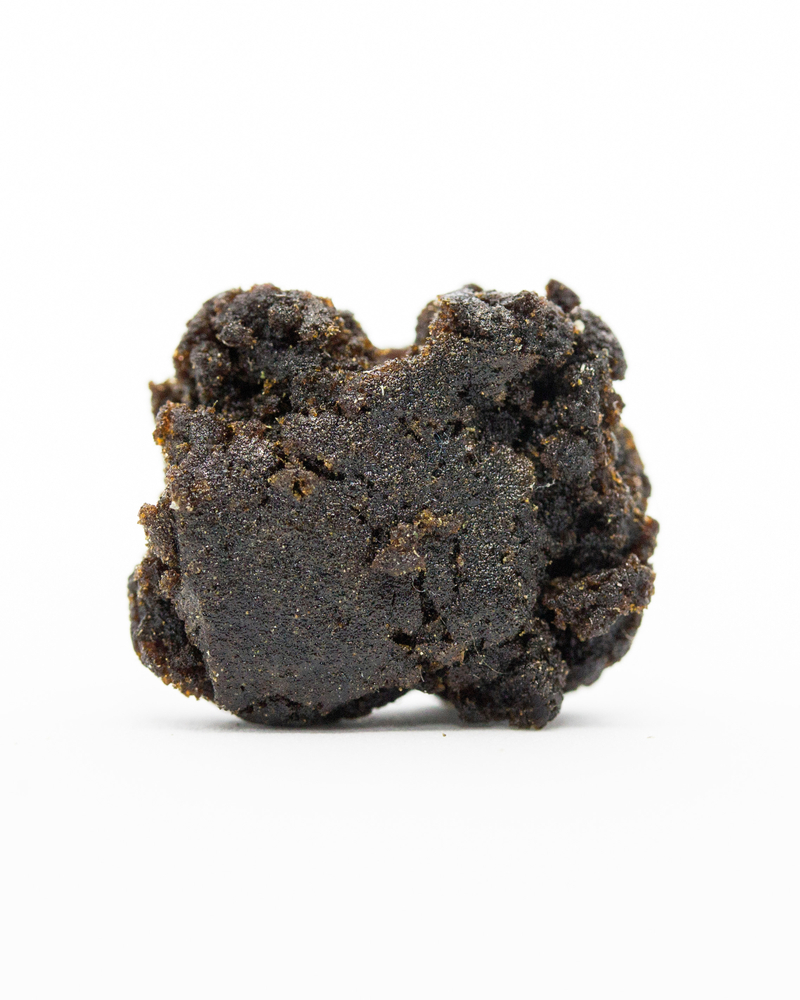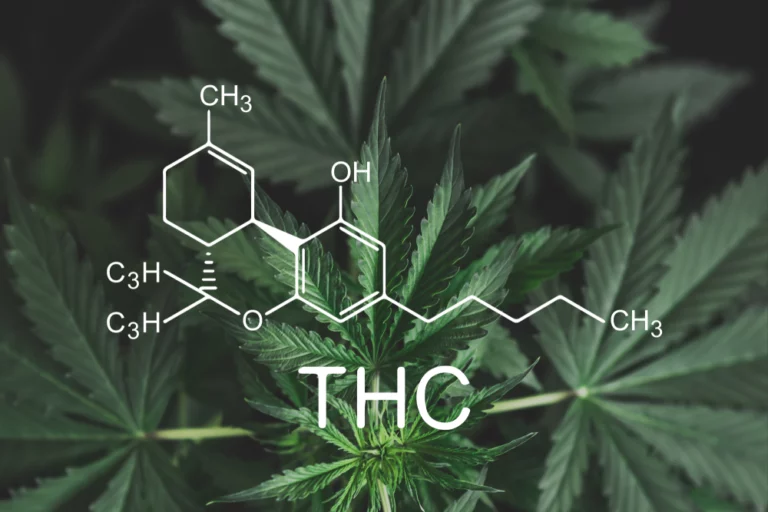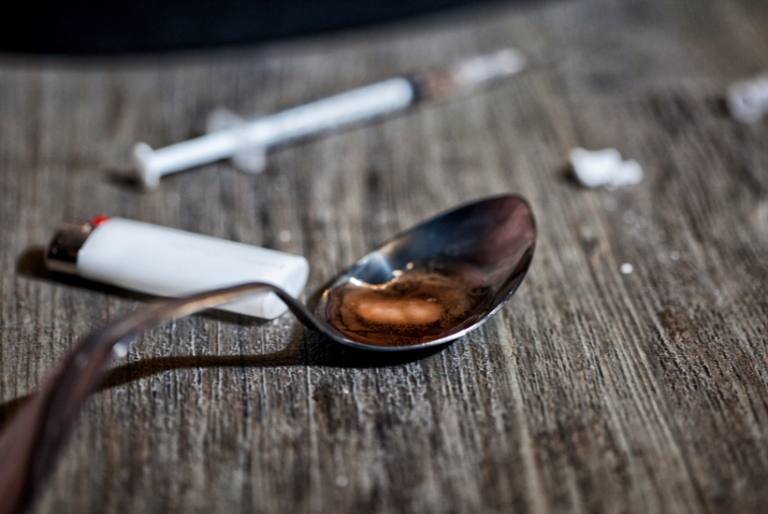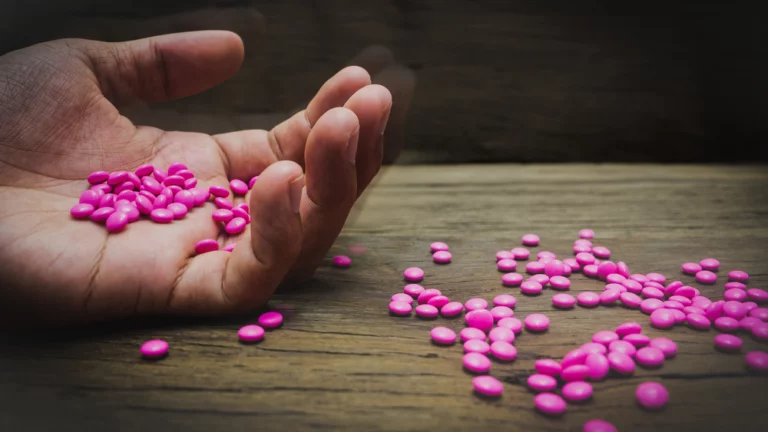Hashish Vs. Weed: Which Is More Addictive?
If you want to know which is more addictive: hashish vs. weed, this is the article for you. As medical and recreational becomes more legalized and less stigmatized, many people can fall into the trap of jumping into stronger and potentially more addictive forms of cannabis, including dabs, oils, and hashish.
Once you finish this short article, you’ll know the difference between hashish vs. weed, including their effects and which is more addictive.
What is Hashish?
Hashish, also called hash, is a potent type of cannabis created by gathering the sticky trichomes from the flowers and leaves of the cannabis sativa plant. These trichomes are then pressed together to form a solid, paste-like substance, usually formed into a cake, ball, or cookie-like sheet that users break off and smoke. Compared to regular marijuana, hashish is usually darker in color (like dark brown, green, or dark blonde) and contains a higher amount of THC (delta-9-tetrahydrocannabinol), the compound that produces the plant’s mind-altering effects.
According to the Drug Enforcement Administration, hash is considered the strongest and most concentrated form of cannabis. A few drops of hash oil on a cigarette are equivalent to smoking a single marijuana joint. Similar to marijuana, both hashish and hashish oil are classified as Schedule I drugs.
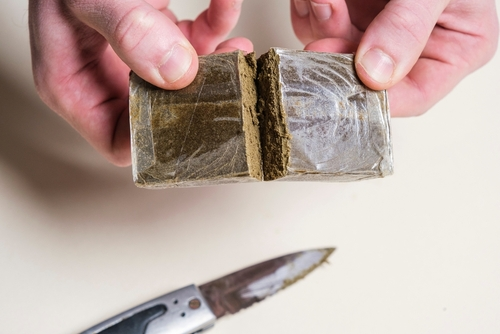
How Is Hashish Made?
Hashish is made by collecting powdery resin from cannabis plants. This can be done by beating the plants or submerging them in icy water and using small sieves to remove the resin, which is then dried. When hashish is made using this method, it’s called “bubble hash.”
The collected resin, known as kief, is often pressed into blocks or cakes. These blocks can be smoked in pipes, vaporized and inhaled, or mixed with marijuana or tobacco in joints or cigarettes. Hashish can have different textures, ranging from soft and pliable to stiff and brittle. It can also come in various colors like red, black, brown, green, yellow, or blonde.
In addition to smoking, hashish can be used in cooking. It can dissolve in oils, butter, or cream, making it possible to create hash-infused foods like brownies. Furthermore, the THC-rich resin can be further processed to make hash oil, a sticky substance that some people “dab” and smoke using e-cigarettes.
Warning: Dealers sometimes mix unknown substances with hashish to make it appear larger and more expensive. These added substances can be harmful and may include carcinogenic solvents, barbiturates, or ketamine. Ingesting hashish that contains these additives can pose significant health risks.
Readers also like: Is Delta 8 Withdrawal The Same As Regular Marijuana?
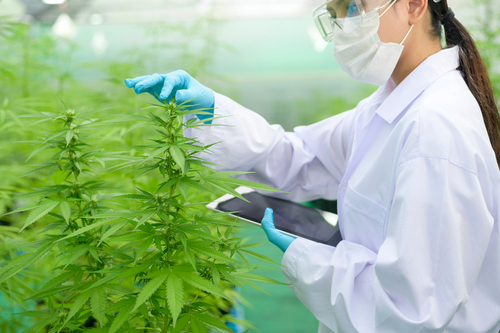
Hashish Vs. Weed Effects
When comparing smoking hash to weed, they can produce different effects. Generally, well-crafted hashish tends to have a stronger impact compared to the original cannabis plant it was derived from. However, not all hashish is the same. Lower-quality forms of hashish may contain additional “filler” substances, including sand, henna, plastic, oil, or even animal hair or feces. Nonetheless, hashish and weed have many similar effects, with a few noticeable differences.
Common Effects of Hashish and Weed:
- Euphoria and relaxation.
- Altered perception of time.
- Increased appetite (“the munchies”).
- Potential for dry mouth and dry eyes.
- Potential for anxiety or paranoia, especially with higher and more potent doses.
Distinct Effects of Hashish:
- Strong and intense psychoactive high.
- Deep relaxation and physical sedation.
- Enhanced sensory perception.
- Increased creativity and introspection.
- Relief from pain and muscle spasms.
Distinct Effects of Weed (Marijuana):
- Mild to moderate psychoactive high.
- Heightened sensory perception and intensified experiences.
- Potential for increased sociability and talkativeness.
- Relief from pain and inflammation.
Read next: Depersonalization From Weed: 10 Tips to Recover
How Hashish Effects Mental Health
When consumed in high doses, both hashish and weed can have negative impacts on mental health. These effects may include memory loss, hallucinations, distorted perception of reality, and difficulties with concentration. Regular inhalation or smoking of hashish can potentially heighten the risk of schizophrenia, particularly in individuals already vulnerable to the condition. Additionally, hashish use is associated with an increased risk of anxiety, depression, and a condition known as “cannabis amotivational syndrome,” which involves a lack of motivation and reduced ability to pursue long-term goals.
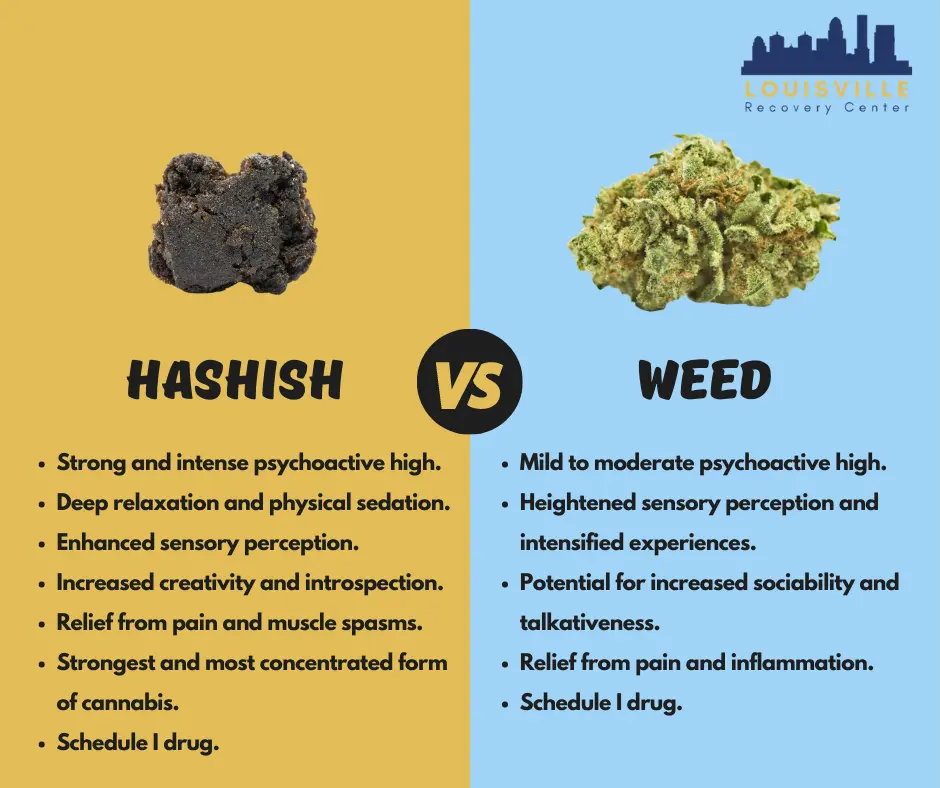
Which Is More Addictive?
When comparing the addictive potential of hashish and weed (marijuana), it’s important to note that both substances can be habit-forming, but their addictive properties can vary. The higher concentration of THC in hashish may lead to a more intense and immediate effect, potentially increasing the likelihood of addiction. On the other hand, weed generally contains lower levels of THC, making it less potent, but users may find this easier to spread out, leading to a slower tolerance buildup.
Like many substances that alter the mind, hashish and weed can become more addictive over time. As you continue to use them, you may find yourself smoking or dabbing more frequently or in larger amounts to achieve the same high. However, it’s important to note that hashish addiction differs from addiction to substances like cocaine or heroin.
When hashish is ingested, it induces euphoria and relaxation, which users find pleasurable and may seek to recreate. With prolonged use, it can become challenging to experience a sense of well-being without hashish, a key symptom of hashish and marijuana addiction. While both are not considered physically addictive, they can create a psychological dependency due to the effects of THC on the brain.
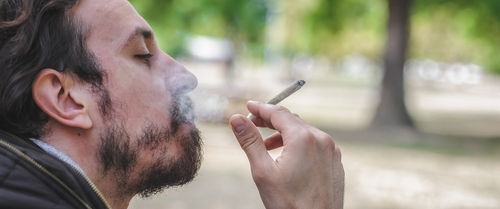
Contact Louisville Recovery Center
If you or someone you know has or is developing a cannabis use disorder, contact Louisville Recovery Center. Our addiction treatment center in Louisville, Kentucky, has all the tools needed to address various substance use disorders, including hashish and marijuana use. Our professional team can guide you through identifying the underlying issues behind substance abuse using healing modalities like equine, experiential, and individual therapy. Call today, and one of our admissions agents can guide you through the initial process.

